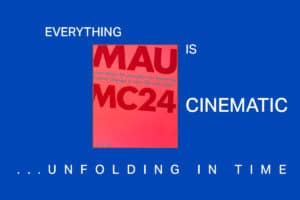Test yourself. If you have two resumes in front of you, what perceptions do you form about the person, solely based on their name? Or when you are on the phone and are put through to someone whose name is….?
In “Freakonomics” by Steven D. Levitt and Stephen J. Dubner, they discuss the strong correlation between certain names and future success.
There is also the stereotyping that the name owners take on, adopting certain behaviours and beliefs. I threw my name in ChatGPT to see how they describe the personality of someone with the name Celeste. It came back with only positive attributes (in the aim of maintaining political correctness!!): Spiritual, optimistic, creative, compassionate, independent. Let me know what ChatGPT throws up for your name.
It’s fair to say, names are pretty important… especially if you are a brand!
So what influences how we perceive and evaluate a brand name:
- Phonetics – Length, complexity and familiarity (Netflix). Short, simple and easy to pronounce names are likely to be preferred and easier to recall.
- Semantics – A brand name that describes its product’s benefits or features can be more effective (Coke No Sugar) than abstract or unrelated names. Cultural associations of a name can also impact its appeal (Veuve Clicquot).
- Personality – We all know brand names that convey excitement and energy (Instagram). Research has also proven that brand names can be evaluated based on their perceived sincerity, competence, and sophistication (Hermes).
- Emotional Response – A brand name that evokes positive emotions (Bumble) such as happiness or excitement is likely to be more appealing.
- Brand context – A brand name never stands in isolation. It is presented visually (your logo / brand guidelines), How it’s presented impacts its appeal and memorability.
You can have the best business model, but if the brand name sucks, everything will suck!
Cuil was a search engine launched in 2008 as a competitor to google. The name was a play on the word “cool”. It was criticised for being difficult to pronounce and spell. Long story short…they failed to gain traction and shut down.
When you look at the marketing pyramid and the process it takes to move your customers from non-awareness to loyalty requires significant effort, time and investment. Hence the importance of getting the name right from the beginning, or changing it, if it’s not.
If we are in the business of business, getting too attached to a name presents a risk. I get that we can definitely (as owners) be too close to call it, but this is when you need to roll in the research. I am not suggesting that research makes the call, but it will give you an indication both of the opportunities and limitations of your brand name…
Nike was originally called “Blue Ribbon Sports”. Amazon was originally called “Cadabra”. Google started out as “Backrub”. In all these cases, we can breathe a sigh of relief! What gets us to one point, may not get us to the next… final food for thought!





